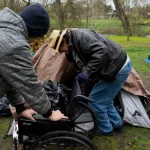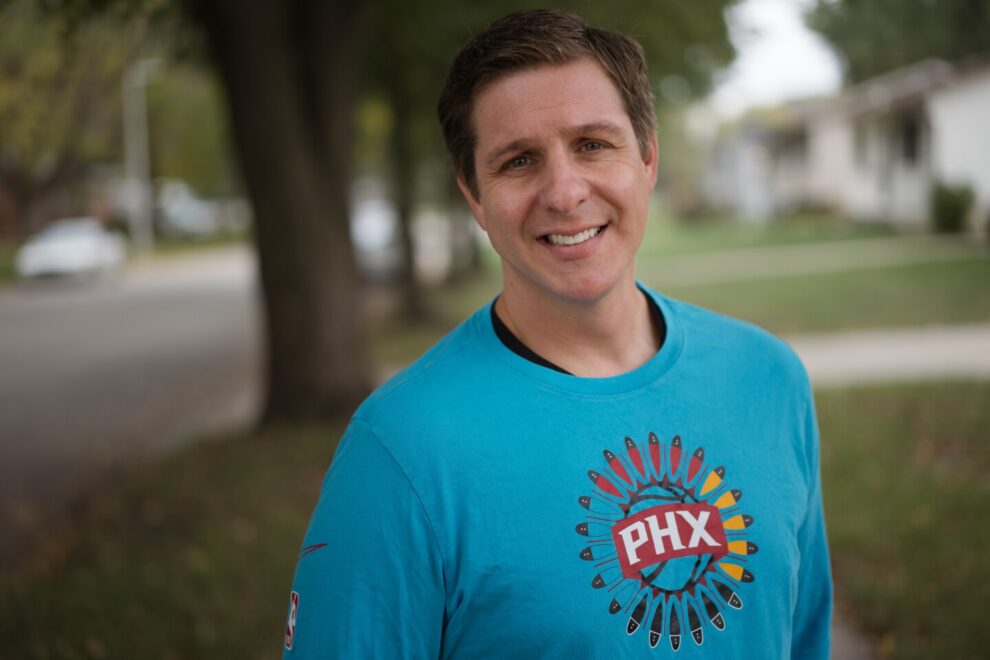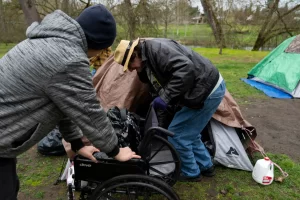Guthrie Capossela joins the new board, which will explore the potential impacts of legalizing psychedelics. Rep. Andy Smith, DFL-Rochester, spearheaded the effort to create the task force.
ROCHESTER — A Rochester resident will serve as an ambassador for the Dakota Tribes on a new statewide board that will study how Minnesota could legalize psychedelic medicine in the future.
“My role there is to try to represent tribal interests within it,” said Guthrie Capossela, the Psychedelic Medicine Task Force appointee. “(To) be the person in the room that would say, ‘Well, how does it impact tribes? What is the health equity impact for American Indians facing the conditions that might be alleviated by psychedelics?'”
As a Native American community engagement coordinator in Mayo Clinic’s Center for Health Equity and Community Engagement Research, Capossela was selected by the elected tribal leaders who make up the Minnesota Indian Affairs Council’s executive board to represent the Dakota Tribes.
“Mr. Capossela presented to the MIAC executive board in November 2022 to outreach to the tribal governments regarding his work at the Mayo Clinic with a three-pronged purpose: to establish a process to strengthen relationships with Tribal Health Divisions located in Minnesota, listen to health and community priorities to align resources and research opportunities and to elevate Tribal Health concerns within the Mayo Clinic,” said Shannon Geshick, executive director of the MIAC. “The board appreciated his presentation and outreach.”
The appointment came as a surprise to Capossela, he said — Geshick called him in late August to let him know that he had been nominated.
“I’m excited about it,” Capossela said. “I’ve been doing Native outreach for 10 years, so to be thought of in this light, it’s kind of an honor.”
The Psychedelic Medicine Task Force was created as part of the Minnesota Legislature’s health omnibus bill this spring. The task force will, as defined in state statute, “advise the legislature on the legal, medical, and policy issues associated with the legalization of psychedelic medicine.”
Rochester Rep. Andy Smith, DFL, was the chief author of the bill to establish the task force. Smith’s interest in psychedelic medicine, he said, was piqued when he read Michael Pollan’s book “How to Change Your Mind,” which explores the potential for using psychedelic substances such as psilocybin, LSD and MDMA for a variety of mental health conditions.
“Especially at a time where we are going through a real mental health crisis,” Smith said, “I thought it was really important for the state to start looking at ways to allow research and treatment to take place.”

The U.S. Drug Enforcement Administration currently classifies LSD, psilocybin (found in psilocybin “magic” mushrooms) and MDMA (commonly known as ecstasy) as Schedule 1 drugs, defined by the DEA as “drugs with no currently accepted medical use and a high potential for abuse.” Cannabis, which is legal in 40 U.S. states for medical use and in 23 for recreational use, is federally listed as a Schedule 1 drug. Minnesota legalized recreational cannabis use in 2023, and the state’s medical cannabis program began serving patients in 2015.
“I partnered with a couple other activists that had been working on cannabis legislation,” Smith said. “We came up with this bill, which is basically taking a play from the playbook of medical cannabis … when that bill was first dropped to form a task committee to figure out how we could legalize this.”
Only two states have decriminalized, legalized and regulated psychedelic drugs: Oregon and Colorado. Nationally, a handful of cities, including Minneapolis, have ordered law enforcement to deprioritize enforcing laws against psychedelic drugs.
Smith outlined three goals for the Psychedelic Medicine Task Force: collecting research on psychedelic medicines to share with the Minnesota Department of Health and Minnesotans, in general; creating infrastructure around legal psychedelic medicine use that would meet safety and care standards; and charting a path for “how we get Minnesota to a place where that infrastructure is in place and the drugs are legal and available to doctors and those who can use them,” he said.
For Capossela, his task force appointment is an opportunity to participate in the government-to-government relationship between the Dakota Tribes and Minnesota.
“I like to be a good steward and enact that in good faith; I fully support the initiative,” Capossela said of the task force. “But at the end of the day, the tribes put me there, so I want to be making sure that I represent a position that would have the most benefit for them and not leave them behind as things progress in Minnesota.”
This emphasis on having tribal representatives on state boards and commissions began with a 2002 executive order by then-Gov. Jesse Ventura that recognized the government-to-government relationships between Minnesota and sovereign tribal nations, Geshick said. Gov. Tim Walz signed this acknowledgment into law in 2022.
“These appointments of Native/Dakota folks on boards, commissions and various task force(s) helps to include voices that have been silenced, marginalized, made invisible, exiled,” Geshick said. “As Minnesota investigates psychedelic medicine, it is important to have the Indigenous voice at the table to hear our experiences, perspectives, points of view from the very beginning of these conversations and be included in decision making.”
Capossela and Smith will join three other state lawmakers, an Ojibwe Tribes representative, medical professionals and patients with treatment-resistant mental health conditions for the task force’s first meeting on Monday, Nov. 6.
“We’re hoping to hit the ground running,” Smith said. “I’m hoping that by … session 2025, we’re actually talking about bills that would legalize these drugs and provide some infrastructure so that they are available to those who want to use them.”
Source : Post Bulletin




































